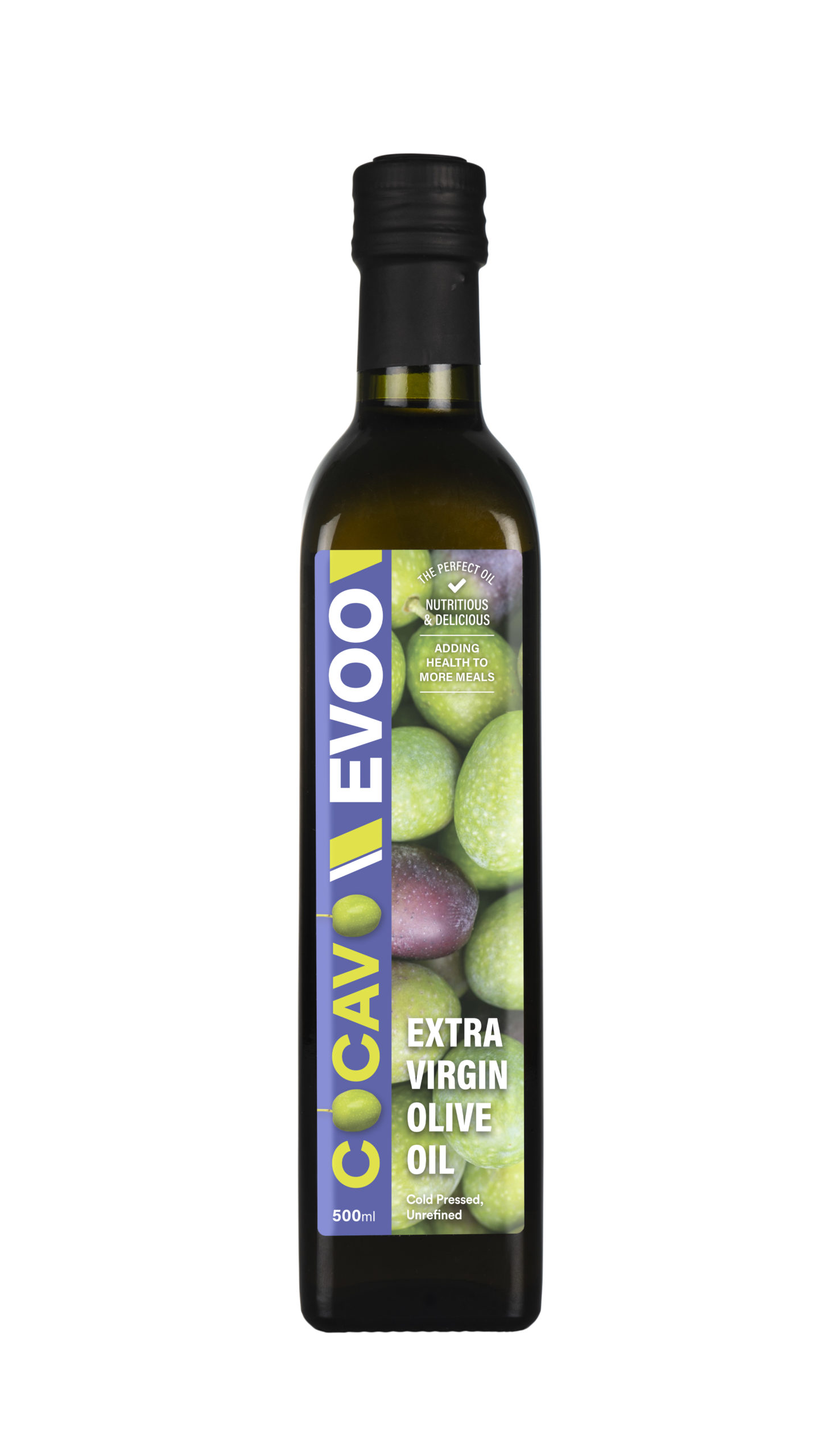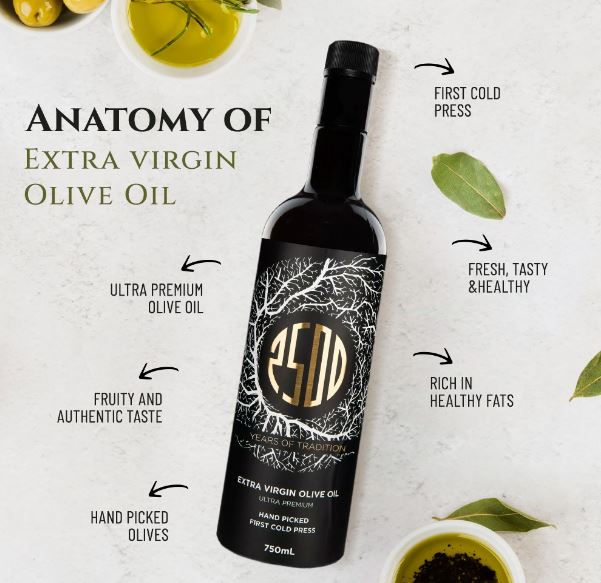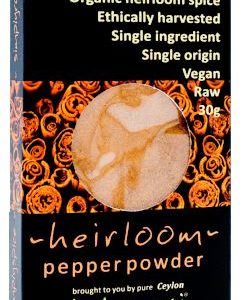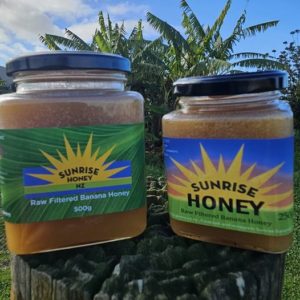Is the Extra Virgin Olive Oil you buy actually good quality?
-
Freshness:
A distinct aroma of fresh olives, often described as smelling like cut grass, herbs, or green apples.
-
Fruitiness:
This is a defining characteristic of EVOO, representing the scent of healthy, fresh olives. It can range from light to intensely fruity.
-
Bitterness:
Some bitterness on the palate is normal and desirable, indicating the presence of antioxidants.
-
Pungency (Peppery Kick):
A peppery, tingling sensation at the back of the throat is a sign of powerful antioxidants (polyphenols) and is highly valued.
-
Smooth and Rich Texture:
The oil should feel smooth and rich in the mouth, not flat, greasy, or overly fatty.
- Off-Flavors: Any taste or smell that is musty, stale, metallic, rancid, fermented, or moldy indicates a defect and means the oil is not of good quality.
- Bland or Greasy Taste: If the oil tastes like nothing or is excessively greasy, it is likely refined or not a true EVOO.
- Briney or Sour Taste: Authentic EVOO should not taste like jarred olives, brine, or sourness.
How to taste Extra Virgin Olive Oil like a pro
What is Extra Virgin Olive Oil?
In 1960, the European Parliament passed a law stipulating that Extra Virgin Olive Oil (EVOO) may only be extracted mechanically without the use of chemicals or heat. This process produces olive oil that retains its flavour, aromas and natural, healthful antioxidant polyphenols.
In 1991, the EU made a law based on standards established by the IOC (International Olive Oil Council), the EU and other governing bodies that olive oil must pass a chemical analysis. It must then pass a panel taste analysis (sensory/organoleptic) showing no defects (bad taste or odour).
International competitions and awards use tastings to rank extra virgin olive oils from average to exceptional. Receiving an award at a leading competition demonstrates the ability of the producer to produce superior, high-quality oil.
What should extra virgin olive oil taste like?
An olive oil is assessed on its balance of these three desirable characteristics – fruity, bitter and pungency (peppery).
A high-quality cold pressed olive oil should taste fresh and fruity. It can have a diverse range of aromas and flavour notes, from floral to fruity, grassy to herbal and peppery.
It shouldn’t taste fusty, musty or metallic. These indicate rancid oils due to incorrect production, extraction and storage conditions causing oxidation. It should taste smooth and rich and should not taste ‘fatty’.
How to taste olive oil in 3 easy steps!
We recommend trying this when you first open your bottle, when it is at its freshest. Tasting are best done on an empty stomach, avoid having strong drinks like coffee, wine or spicy food beforehand. You should wash your hands in non fragranced soap/ hand wash.
Tasting olive oil is much the same as tasting wine.
- We smell. Pour roughly a tbsp of olive oil into a small glass. Professional sommeliers/judges use a small dark glass (usually dark blue) at olive oil competitions so the colour of the oil does not influence them. An olive oils colour is not an indicator of its quality or its taste. Cover the top of the glass with one hand and place the other under the base. This helps to warm the oil and to trap in the aromas, gently begin to swirl the glass around for 30 seconds. Lift your top hand and give the oil a good sniff, inhaling through your nose.
Now think about what you can smell. High quality olive oils should smell fresh and fruity. Tunisian olive oil is all about the fresh young olive smell, fresh cut grass and some herbal notes and a long peppery finish (when tasted). - We now taste. Swirl the glass again, take a small sip but enough to coat all the mouth not just the tongue, as you do touch your tongue to the back of the top teeth and inhale through the front and sides of your mouth. Then close your mouth completely and breathe out through your nose. This aeration technique unlocks the aromas.
- Then swallow the oil. Assess the taste. It should feel velvety and rich. How bitter and pungent (pepppery) is it? You may feel a strong peppery kick on the back of your throat, which may even cause you to cough. This sensation is actually a very important positive attribute in extra virgin olive oil. It is caused by a naturally occurring polyphenol called Oleocanthal.Oleocanthal has strong antioxidant and anti-inflammatory properties thats act in the same way as ibuprofen to stifle components of a pain pathway called the prostaglandin system.
Research reveals that it may have therapeutic effects against chronic diseases such as heart disease, cancer, Alzheimer’s, strokes and other conditions. See for yourself >
However, it can only be found in high-quality extra virgin olive oil, not in refined olive oils or anywhere else in nature. This is typically found in olive oil that is produced from olives that are harvested early in the season when the olive is at the height of its polyphenol nutritional peak.
In general, the more bitter and pungent an oil the healthier it is. High phenolic olive oils contain the highest levels of this unique polyphenol.
The Health Benefits of Extra Virgin Olive Oil
1. Monounsaturated Fats: Heart-Healthy Goodness
EVOO is predominantly composed of monounsaturated fats, particularly oleic acid, which has been linked to numerous cardiovascular benefits. These healthy fats help:
- Lower bad cholesterol (LDL) while increasing good cholesterol (HDL)
- Reduce the risk of heart disease by improving blood vessel function
- Reduced risk of stroke
- Combat inflammation, a key factor in many chronic diseases
2. Polyphenols: Nature’s Antioxidant Powerhouses
Polyphenols are plant-based compounds responsible for EVOO’s distinct taste and remarkable health benefits.
Two of the most powerful polyphenols in high-quality EVOO include:
- Oleocanthal – A natural anti-inflammatory compound that mimics the effects of ibuprofen, helping to reduce inflammation which may help protect against chronic conditions such as heart disease, arthritis, Alzheimer’s, and various cancers including breast cancer, and colorectal cancer. Research suggests that oleocanthal may help fight cancer cells, making EVOO a valuable ally in disease prevention.
- Oleacein – A potent antioxidant that protects cells from oxidative stress, slowing the ageing process and reducing the risk of chronic diseases.
3. Hydroxytyrosol: A Guardian Against Free Radicals
This unique polyphenol plays a crucial role in neutralising free radicals, offering protection against cellular damage. Studies link hydroxytyrosol to:
- Slowing ageing by combating oxidative stress
- Supporting heart health by preventing plaque buildup in arteries
- Enhancing brain function and reducing the risk of neurodegenerative diseases
4. Vitamin E: Essential for Skin, Immunity, and Brain Health
EVOO is an excellent source of vitamin E. This vital nutrient helps:
- Protect skin from ageing and UV damage
- Strengthen the immune system
- Support cognitive function by reducing oxidative stress in nerve cells.
5. Vitamin K – plays a vital role in bone health and blood clotting.
While it is not the most concentrated source of Vitamin K, it can contribute to your daily intake.
Why Choose High-Phenolic EVOO?
Not all olive oils are created equal. The health benefits of EVOO are largely determined by its polyphenol content, which varies depending on factors like olive variety, harvest time, and processing methods. Tunisian EVOO stands out due to its exceptionally high polyphenol levels, offering maximum health benefits compared to regular olive oils. High phenolic olive oil can play a crucial role in disease prevention.
EVOO with high polyphenol levels increases the oil’s shelf life and cooking temperatures.
Tunisian Extra Virgin Olive Oil is naturally rich in Polyphenols due to the dry weather, long exposure to the sun (more than 330 days of sun on a yearly basis), and to the strength and robustness of local varieties. Reasonable consumption of Tunisian Extra Virgin Olive Oil contributes to:
- Skin freshness
- Weight Loss and fitness
- Longevity
- Pain relief
- Reinforcing focus and brain capacities
- Preventing chronic diseases (Diabetes & Cancer mainly)
- Strengthening the immune system
According to Olive Oil Times, “Extra virgin olive oil is an unprocessed, pure fruit juice that has been shown to have the most health benefits (…) in the start of 2020, the Mediterranean diet was named as the best overall eating plan for the third consecutive year by a panel of nutritionists, diabetes specialists, heart health and weight loss experts in the US News & World Report’s annual list of top diets.”
Incorporating EVOO Into Your Diet
Adding EVOO to your daily routine is easy and delicious. Try:
- Drizzling it over salads and roasted vegetables
- Drizzling over Greek yoghurt
- Using it as a base for homemade dressings, dips and marinades
- Take a shot
- Use for cooking – higher polyphenol content increases cooking temperatures up to 240c
Experience the Nutritional Power of Extra Virgin Olive Oil
Choosing a premium, high-polyphenol EVOO ensures you’re getting the most out of this superfood. From heart health and brain function to immune support and inflammation reduction, EVOO is a simple yet powerful way to enhance your diet and well-being.







